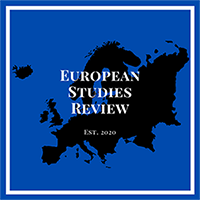By Myriam Marino
One year after the outburst of the first wave of the Covid-19 pandemic, Member States of the European Union are managing the most extensive vaccination campaign of all time. If differences regarding the rendition and administration of campaigns between Western and Central and Eastern Europe (CEE) were expected, the current situation displays divergencies and peculiarities to be identified nationally, rather than regionally. Most importantly, in comparison with the negotiations at the origins of the EU vaccination strategy, Central-Eastern countries have taken a different path, along with the ever-increasing influence of Russia and China in the region.
The more recent wave of the virus has proved to be the most intense for CEE countries and, particularly, for the Visegrád Four members, reporting the highest death rates in Europe. Within this region, political actors have oftentimes taken over the reins of the national emergency, not rarely circumventing warnings and advice coming from the scientific community. Decisions to opt for an – often premature – easing of Covid-19 restrictions were taken by governments to avoid potential social and political reactions. A demonstrative example is the Czech Republic, where Prime Minister Babiš and President Miloš Zeman were in regular disagreement with scientific authorities, leading to the resignation of the health minister Jan Blatný. A new minister was, therefore, designated last April, the third since September 2020. This time, frictions between political and scientific exponents started regarding the Russian-produced Sputnik V vaccine. More specifically, national health experts had expressed skeptical opinions about the use of the Russian jab before its approval by the authorities of the European Medicines Agency.
Nonetheless, the Czech Republic was the only one among several states in the Central-Eastern European region that began looking with strong interest at the Russian vaccine. Long and delayed procedures of approval and shipment, as well as growing doubts over the effectiveness and safety of EU-passed vaccines, have persuaded a number of Member States to shift their national vaccination strategies. To mention another case, already in early March 2021, Poland’s President Andrzej Duda had discussed with Chinese President Xi Jinping the purchase of the Chinese-produced vaccine, to find alternatives to the EU-backed jabs. Nevertheless, it is worth emphasizing that several governments that have opted and are opting for non-EMA-approved vaccines still highly profit from the overall common recovery strategy of the European Union.
In spite of the diffused intention to introduce Sputnik V as the protagonist of many national vaccination campaigns, some political actors still displayed cautious stances towards it. At the end of April, the Czech medicines regulator was unable to approve the Russian jab, due to anomalies in the supplied and analyzed pieces. An analogous event had already taken place in Slovakia. Moreover, the Slovak Prime Minister Igor Matovič had initiated, in early March, the purchase of 2 million doses of the Sputnik V without prior internal political and scientific consultation. This resulted in a national political crisis and in the Prime Minister’s resignation on March 29th.
Meanwhile, in Hungary, Prime Minister Orbán has firmly proceeded with the vaccination campaign. The Government has based its vaccination strategy almost completely on the Chinese and Russian jabs. PM Orbán released images of his own vaccination with the Sinopharm Chinese jab on social networks, while proudly promoting Hungary’s initiative to overlook EU-approved vaccines, over the last months. On the other hand, opposition parties were accused by the Government of discouraging the national vaccination campaign, as political opponents were displaying wary stances towards unapproved vaccines. All things considered, Hungary, currently figures as the second country in the EU with the highest percentage of people who have been inoculated with at least one dose of the jab, with 47.1% of the population (data of May 14th).
While Central-Eastern Europe has become a potential setting for Russia and China to exercise soft power through vaccine diplomacy, questions arise over the issue of the Covid travel pass. An agreement was achieved on the 21st of May, stating that the “EU Digital COVID certificate” will be issued only to people vaccinated with jabs approved by the EMA. This decision could exacerbate existing divisions, not only at the European Union level, but at international levels, and create further and more intense controversies. Indeed, the influence extended potentially goes well beyond vaccine provision. Concerns arise, therefore, regarding the role of vaccine-producers and exporters in Western Balkan countries, as well, since, as written in a joint letter of nine EU foreign ministers from last March, “other actors are ready to step in the regional affairs, often at our expense”.

